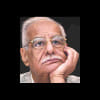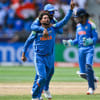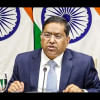Emergency should never be forgotten

Strange, in the process of selecting who should be the next President of India, the nation has forgotten the emergency which was imposed some forty-two years ago. More than one lakh people were detained without trial. The media which could have reported the conditions prevailing was muzzled. Civil servants obediently issued the orders, which came from Sanjay Gandhi, the extra constitutional authority that ruled the country in the name of his mother, then the Prime Minster.
The judiciary caved in and upheld that Parliament could suspend the fundamental rights enshrined in the constitution. Even the imposition of the emergency was justified. Only one judge, Justice H.R. Khanna, gave the dissenting judgment. He was superseded. It is another matter that the country punished the then Prime Minister, Indira Gandhi, when she was ousted from power, lock, stock and barrel in the elections that were held. Similar was the fate of her son, Sanjay Gandhi.
What disappoints me is that the Supreme Court never passed a resolution or did anything to register its criticism against the judgment which had given the judiciary a bad name. Even now it is not too late. The Supreme Court has liberal judges on the bench. They can make up by passing a resolution that their predecessor bench was wrong in having endorsed the emergency.
At least the Prime Minister Narendra Modi's cabinet should say sorry on behalf of the Centre for the excesses committed by earlier government during the emergency. The then Attorney General, Niren De, had even argued in court that the right to live was forfeited during the emergency.
There was so much fear among Delhi lawyers like Soli Sorabjee from Mumbai and V.M. Tharkunde from Delhi who argued the habeas corpus petitions filed by my wife. Still I spent three months in jail.
The two judges, Justice S. Rangarajan and Justice R.N. Aggarwal, who gave the judgment, were punished. The first one was transferred to Guwahati where people still remember him for his impartiality. The second was demoted and sent back to the Sessions Court. This did not, however, deter them and they carried on their work boldly and independently.
Probably, the pressure on the judges has lessened in recent years because of vigilant media. But the worse is happening in appointments to the benches. They are being made according to the whims and wishes of rulers. This began with the Congress government and has continued with the Bhartiya Janata Party (BJP) in power.
I recall that the process started when Indira Gandhi had superseded three judges — Justices J.M. Shelat, K.S. Hegde and A.N. Grover — to appoint Justice A.N. Ray as the Chief Justice. She had been unseated from parliament and disqualified for poll malpractices for six years. Instead of accepting the verdict with grace, she imposed the emergency and amended the election law itself.
The excesses which Indira Gandhi and Sanjay Gandhi committed during the emergency may be part of history, but to me they are recalled by not only those who suffered but also those who supported democracy. It was the Janata Party, which came to power after defeating Mrs. Gandhi that changed the constitution to make the imposition of the emergency impossible. And Justice Khanna's dissenting judgment that the basic structure of the constitution could not be changed was accepted as the norm. This has ensured the parliamentary system of governance and has deterred every ruler since then not to tinker with the judiciary.
Ultimately, the independence of the judiciary depends on the quality of judges. In the US, the biggest democracy, the Supreme Court is divided between the Republican and Democrat judges. Since the tenure of the judges is for a lifetime, the appointees of one party have risen above their old loyalties and become independent and impartial.
In India, we had the best of judges when the government appointed them. But now party politics has crept in. At least it has been seen in High Courts that the party in power has not appointed the best of lawyers but those who owed allegiance to a particular political party. Even in the Supreme Court, some appointments come under the shadow of doubt.
Some examples of the past are worth praise. Take the case of former Solicitor General Gopal Subramanium whose appointment to the Supreme Court was stalled by the Narendra Modi government. Blaming the government for blocking his appointment, Subramanium said his "independence as a lawyer is causing apprehensions that I will not toe the line of the government. This factor has been decisive in refusing to appoint me." He withdrew from the race.
In fact, it was at his insistence that the Gujarat police was forced to book a murder case in the Sohrabuddin fake encounter matter. When the prime witness, Tulsiram Prajapati, was liquidated under suspicious circumstances, Subramanium had recommended the transfer of the case to the CBI. Significantly, Subramanium also admitted that it was on his suggestion that the Supreme Court, while granting bail to accused Amit Shah, now the BJP president, had barred him from entering Gujarat.
Most pathetic was the role of the media. I recall that when the emergency was imposed there was anger and more than a hundred journalists assembled at the Press Club at my bidding to criticise the emergency. But when I tried to pick up the thread after my detention, there was hardly anyone to support. Mrs. Gandhi had created so much fear in the minds of journalists that they were more worried about their jobs than the freedom of the press, which they otherwise cherished.
The writer is an eminent Indian columnist.

 For all latest news, follow The Daily Star's Google News channel.
For all latest news, follow The Daily Star's Google News channel. 








Comments